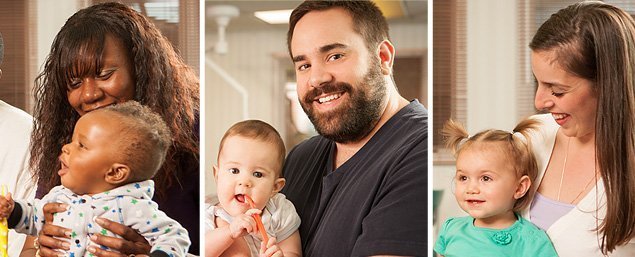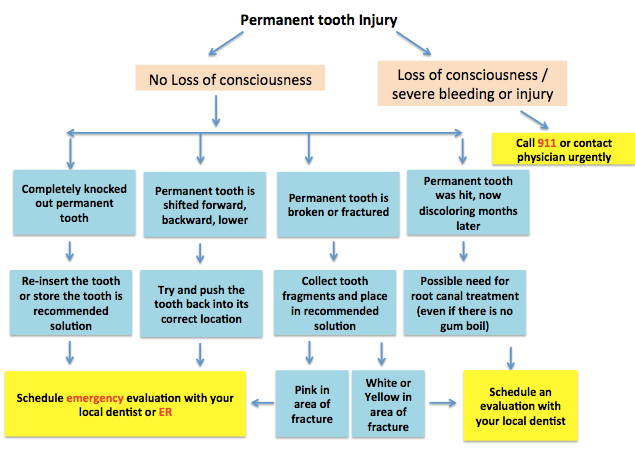





Written by: Avani Khera, DMD
From playing sports, to roughhousing with their siblings, many children suffer trauma to their teeth. Many dental injuries are sports-related, most commonly due to basketball or baseball. Making sure your child wears a mouth guard, helmet, and face guard during sports activities is an important way of preventing dental trauma from happening in the first place! Custom mouth guards are recommended and available through your dentist. Generic mouthguards are available over the counter at most drug stores.
If dental trauma does occur, use the tips below to help simplify the best next steps for your child. Most importantly, if your child has experienced a serious injury or is unconscious, call 911.
If your child has experienced dental trauma and 911 is not necessary, it’s important to see if the injury has occurred to a baby tooth or a permanent (adult) tooth.
To learn about what to do in the event of trauma to a baby tooth, please click here.
Trauma to permanent teeth:
Usually around 6-7 years of age, children will begin to get their first permanent tooth. If an injured tooth is hit hard but not loosened or knocked out, an evaluation with a dentist should be scheduled within the week.
Unlike a knocked out baby tooth, a knocked out permanent tooth is a true dental emergency. If the tooth becomes loose or displaced:

Tips and Advice:
Remember, while most dental trauma is preventable, accidents happen! And always contact your physician or dentist for additional guidance when needed.
Avani Khera, DMD is the Lutheran Medical Center Pediatric Dental Resident at St. Joseph Pediatric and Family Dental Center.
